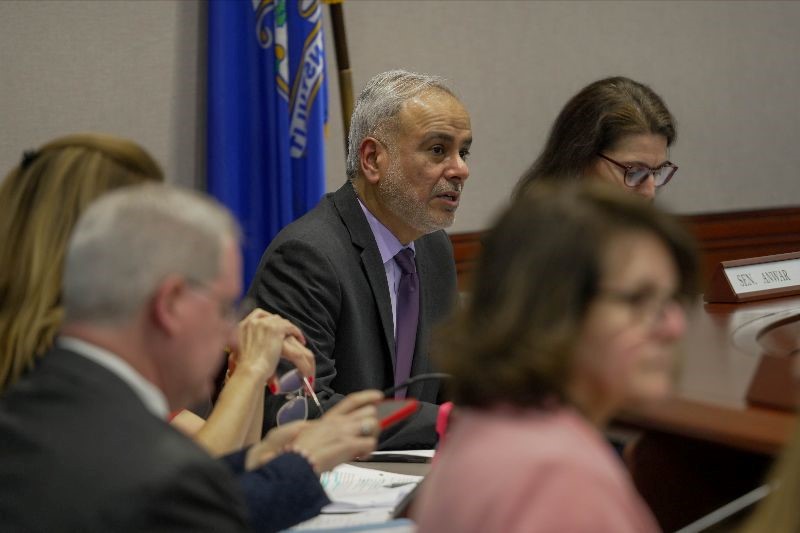
State Senator
Saud Anwar
Deputy President Pro Tempore
Working For You
- Representing
- East Hartford,
- Ellington,
- East Windsor,
- South Windsor


Today, the Public Health Committee passed legislation that would create a pilot program for overdose prevention centers, locations supporting individuals with substance use disorder to reduce overdose deaths and connect those in need with resources to help them. Families of those struggling with substance use disorder and whose loved ones died from overdoses looked on as the committee passed the bill.
Senate Bill 1285, “An Act Establishing An Overdose Prevention Center Pilot Program,” which was introduced this year by State Senator Saud Anwar (D-South Windsor), Senate Chair of the Public Health Committee, calls for the state to develop a program establishing four such centers in different municipalities in 2026 should it pass.
Each center would employ licensed health care providers who have experience treating substance use disorder. Those employees would monitor individuals using substances in the centers, including providing medical treatment in the event an individual experiences an overdose.
“We’ve been fighting the opioid crisis for more than a decade now, and while medical professionals are encouraged that overdose deaths are declining in Connecticut in recent years, the point remains that far too many people continue to struggle and suffer with substance use disorder,” said Sen. Anwar. “Our family members, friends and colleagues continue to remain at risk and our current strategies aren’t meeting their needs. Overdose prevention centers reduce stigma. They connect people with resources that can improve their lives. They’re a viable alternative to our current strategies and provide a human connection to people when they most need them. I look forward to introducing this bill on the Senate floor later this year and hope to see it become law.”
Staff at centers would also offer drug test materials to individuals to ensure the safety of their substances being used and would also provide referrals to individuals regarding substance use disorder treatment or other mental health treatment. The bill would also see the creation of an advisory committee to make recommendations regarding public health, safety and operational matters in the centers.
Public testimony on the bill was nearly universally positive, with medical professionals, educators, advocates, recovery support specialists and those who lost loved ones to overdoses all supporting the bill.
Abigail Wood Maldonaldo, behavioral health director for the Western CT Coalition, testified that overdose prevention center models in the United States have shown their effectiveness, including a study that every dollar spent on them saved $5 in health care and emergency response costs. A New York City location, OnPoint, has served more than 5,800 people since 2021 with nearly 1,700 overdose interventions, none of which led to death.
Peter Canning, a paramedic, testified that overdose prevention centers provide individuals with a place for social connection as well as safe usage and provides them with direct connections to recovery resources, improving the odds an individual ceases use of drugs.
The National Institute on Drug Use said these centers, while rare in the United States, have successfully operated in a number of international countries for more than two decades. Studies found these centers have not seen a death from overdose on their premises and are in fact connected to reductions in public drug use, lower demand on health care resources and reduced use of emergency response services among those with substance use disorder. Centers are also tied to increased access to treatment for substance use disorder.
The Drug Policy Alliance reported that these centers reduce discarded syringes, risk of physical or sexual violence and risky behaviors connected to infectious diseases among substance users.
A 2022 Data for Progress survey found these centers received 64% support, with both Democrats and Republicans approving of the treatment concept.
FOR IMMEDIATE RELEASE
Contact: Joe O’Leary | Joe.OLeary@cga.ct.gov | 508-479-4969